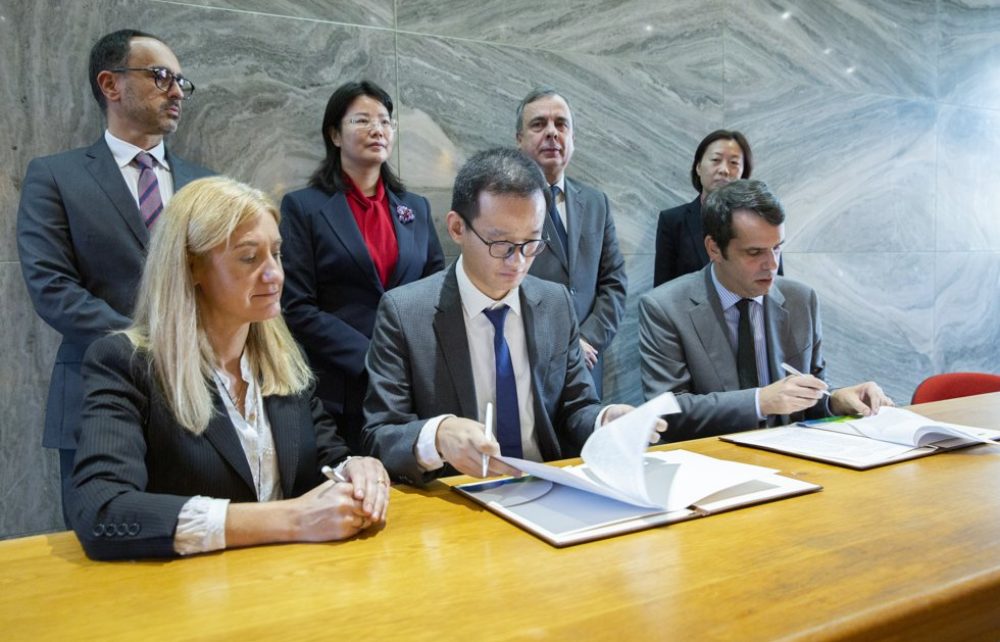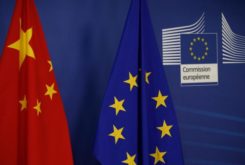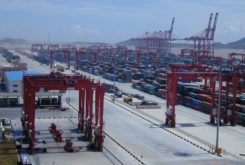Chinese investment in Europe (EU-27+UK) continued its multi-year decline in 2022, with the continent becoming a “key part of China’s global electric vehicle expansion”, according to german think-tank MERICS.
“Battery investments are now the mainstay of Chinese investment in Europe. Further greenfield expansion in Europe in up- and down-stream segments of electric vehicle (EV) value chains, including vehicle production, are being considered by Chinese firms”, MERICS said in its annual report on Chinese investment in Europe.
Among top announced investments along the EV supply chain MERICS includes the CALB battery plant in Sines, Portugal (deal signing pictured above). According to the think-tanks estimations, Portugal took in EUR 6.8 billion of Chinese investment between 2000-2022, making it one of the top receivers in the continent.
‘Visible shift’ in the framing of China by the European Union
“Driven by electric vehicle battery factories, Chinese greenfield investment in Europe increased by 53 percent, exceeding M&A flows for the first time since 2008”, MERICS says.
“A lack of Chinese M&A activity was the prime reason for the fall. Only one transaction – Tencent’s purchase of British video game developer Sumo Digital – exceeded one billion euros”, MERICS adds.
According to MERICS, 88 percent of investment flowed to just four countries, the “Big Three” European economies (the UK, France and Germany) and Hungary. All four received major greenfield investments by Chinese battery makers, as well as most of the year’s M&A activity.
Chinese FDI in Europe reached a decade low of just EUR 7.9 billion in 2022, down 22 percent compared to 2021. The drop takes Chinese investment back to its 2013 level.
In line with the global decline in cross-border investment, Chinese outbound foreign direct investment (FDI) fell by 23 percent in 2022 compared to 2021, to USD 117 billion (EUR 111 billion). China’s outbound mergers and acquisitions (M&A) activity also dropped, falling 21 percent from 2021 levels to a total of EUR 22 billion, MERICS estimates.
“A range of external and internal factors – from China’s zero-Covid policies to rising global risks following Russia’s invasion of Ukraine – created strong headwinds for Chinese investors”, the report adds.
Brussels and European capitals face ‘reality of interacting with a more assertive China’
As in 2021, consumer products – again driven by a single large acquisition – and automotive remained the two top sectors. Three quarters of total Chinese investment flowed into these two sectors, according to the report.
“The end of China’s zero-Covid policy could boost Chinese outbound investment in 2023, but China’s fragile economic situation and geopolitical pressures make a rebound to mid-2010 investment levels unlikely”, MERICS says.
Another key trend is that European governments are tightening investment screening measures, impacting Chinese acquisitions of strategic assets such as European semiconductor companies and critical infrastructure.




